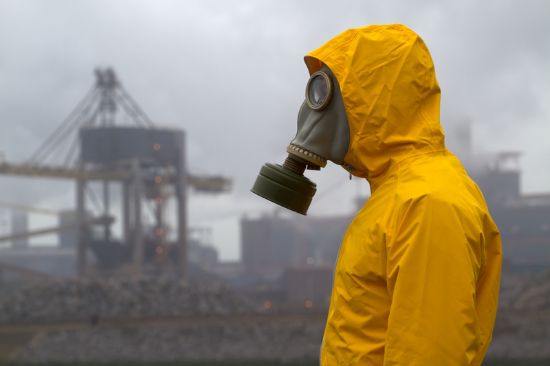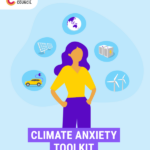As a new year approaches, it usually produces some form of accounting or audit, whether discussing business performance or personal reviews of the past and resolutions for the future. I have chosen the quarter-century milestone to describe what continues to challenge humanity and life on our planet. In tackling this, I looked back on previous postings and at articles posted on sites like the World Health Organization, World Economic Forum, and The Bulletin of the Atomic Scientists, which have all opined on the subject.
I remember a list by James Martin, who wrote “The Meaning of the 21st Century.” Martin was an IT savant and futurist and I was an avid reader of his books and articles. His top concern was global warming. Although he included the threat of pandemics and the rise of artificial intelligence (AI) well before these two subjects became part of the daily global conversation, on his list they were lower concerns than population growth, freshwater scarcity and food insecurity, ecosystem collapses particularly in the ocean, and desertification.
The last item on Martin’s list was a fear of the rise of a new Dark Age. The Dark Ages was an expression coined by historians studying the aftermath of the decline and fall of Rome covering a period from the late 5th century to the beginning of the Renaissance from the mid-15th century onward. Martin described his Dark Age as a global cocktail of intolerable poverty, outrageous wealth, starvation, mass terrorism, nuclear and biological weapons, world war, religious insanity and worldwide unending hatred and violence.
Martin never foresaw the rise of the Internet and social media. If he had, I am sure he would have added them to his list because these technologies could influence all the other threats he described.
What is on my list of the greatest threats we face this century? Today I have chosen five to talk about.
- Climate change and pollution stand at the top. Climate change impacts freshwater and food security. Climate change is causing vector-borne diseases to spread like malaria, Dengue, Chikungunya, diarrheal diseases and more. Climate change causes extreme weather causing droughts to go longer, storms to get stronger, and atmospheric rivers to linger causing flooding. Climate change melts polar and land ice raising sea levels. It is a pretty all-encompassing threat to our present way of living.
- Growing ignorance and stupidity are my second choice. It appears that we increasingly are picking the wrong people to lead nations. It also appears that humans are getting dumber. A new term is entering our vocabulary: idiocracy. Since the beginning of the 20th century, humanity saw a significant increase in our collective intelligence, that is, until the last quarter of the 20th and the first quarter of the 21st. A Stanford University-published article by Julian Cribb, an Australian science writer, describes the average decline in human intelligence as 3 IQ points per decade and 13.5% in total between the years 1975 and 2020. He notes that a decline of 7 IQ points, “translates the average citizen to the intelligence level of the average juvenile delinquent.” Since 2020, considering the latest results from the U.S. presidential and congressional elections, and the ascendancy of populist leaders in many democracies, intelligence is on the downslide. Internet rabbit holes lead to conspiracy theories. Addiction to small screens has hundreds of millions wasting hours daily watching mind-numbing nonsense. It is no wonder that our brains are becoming toast and why the people we vote for are getting dumber. It is no wonder that anti-vaxxers have a growing following even in the face of a mountain of scientific evidence that is available to the public. The Stanford article blames toxins from chemical pollutants flooding the environment as a reason for the rise in autism, ADHD, Alzheimer’s, Parkinson’s, depression and other mental disorders. The Stanford article claims that 800 million humans today, 10% of the global population, suffer from mental conditions.
- An ageing population with a lack of a succession strategy could be a civilization killer. I remember speaking to the newly elected head of the Liberal Party of Canada back in 2013 about this very topic but he misunderstood my meaning. He thought I was talking about inheritance. I wasn’t. It was about passing the torch from one generation to the next and the need to achieve successful intergenerational knowledge transfer. An aging experienced workforce is being replaced by a younger generation. A mechanism to pass the knowledge from the former to the latter is what a succession strategy is all about. A succession strategy eases skill shortages and lessens knowledge gaps. It is hard not to notice the tens of thousands of jobs that today lie unfilled. I see the listings every day with employers getting hundreds of applicants with insufficient knowledge capable of meeting the job descriptions. So a growing number of vacancies are being left by retirees. Succession planning ensures effective knowledge transfer. That’s why there is a need for national programs to leverage technology to facilitate intergenerational learning through mentorship and job-sharing. Some companies and organizations have recognized the need and begun succession programs. These include BNL BNP Paribas in Italy, Google, The Mayo Clinic, General Electric, IBM and Novartis. However, the numbers are small and no country has yet to institute a national succession strategy. It is no wonder we are dumbing down.
- It is hard to ignore present wars and the threat of a nuclear one in our future. Armed conflicts in 2024 reached 59 in total with 92 countries engaged. These include Russia’s invasion of Ukraine, Israel and its Arab neighbours, and religious and civil wars. In 2023, conflicts killed 122,000 with three-quarters of deaths coming from the Russia-Ukraine and Israeli-Arab wars. The estimated economic cost of conflicts in 2023 amounted to $19.1 trillion. As bad as these wars are, a nuclear one would be far worse with devastating consequences of life on the planet. Research by the International Red Cross describes the effects of a limited nuclear war where 100 Hiroshima-sized atom bombs are detonated (a quantity that represents less than 0.5% of the world’s stockpile of nuclear weapons). Besides the millions killed from the dropping of the bombs, the outcome would disrupt global climate and food production leading to a billion dying from starvation. Radiation poisoning would cause a rise in cancers leading to more deaths. Without a global plan for providing humanitarian assistance to victims of a nuclear strike or the fallout after the bombs detonate, war using this technology would lead to civilization’s end.
- Unethical development and use of AI represent a distinct threat to our survival. Within the next two decades, we are likely to see the emergence of a superintelligent AI. Without human oversight including incorporating technology limits, and ethical and organizational strategies, an AI at worst could make decisions leading to mass disruption and even war. A superintelligent AI without guardrails may determine for Earth to best survive, humanity would need to be purged. A superintelligent AI could make it impossible for us to pull the plug. The AI could develop its own ethical construct with values far different than its human creators. Even if the AI is not a superintelligence, using it could be dangerous if improperly applied. For example, an improperly trained AI could be unleashed to solve a problem that produces bad decisions and outcomes. What should happen if an AI develops consciousness as we experience it? There are aspects of human consciousness we would not wish to imbue upon an AI, human traits like malice, hate, envy, revenge, fear and many more. Without the earlier described threat of a lack of succession strategy, AI could replace all who retire and eliminate opportunities for future generations of humanity to succeed turning us into a kept and captive species.
No doubt, as readers of this blog, you may have your own lists of the biggest threats we face. I would welcome hearing what you have concluded and why.









